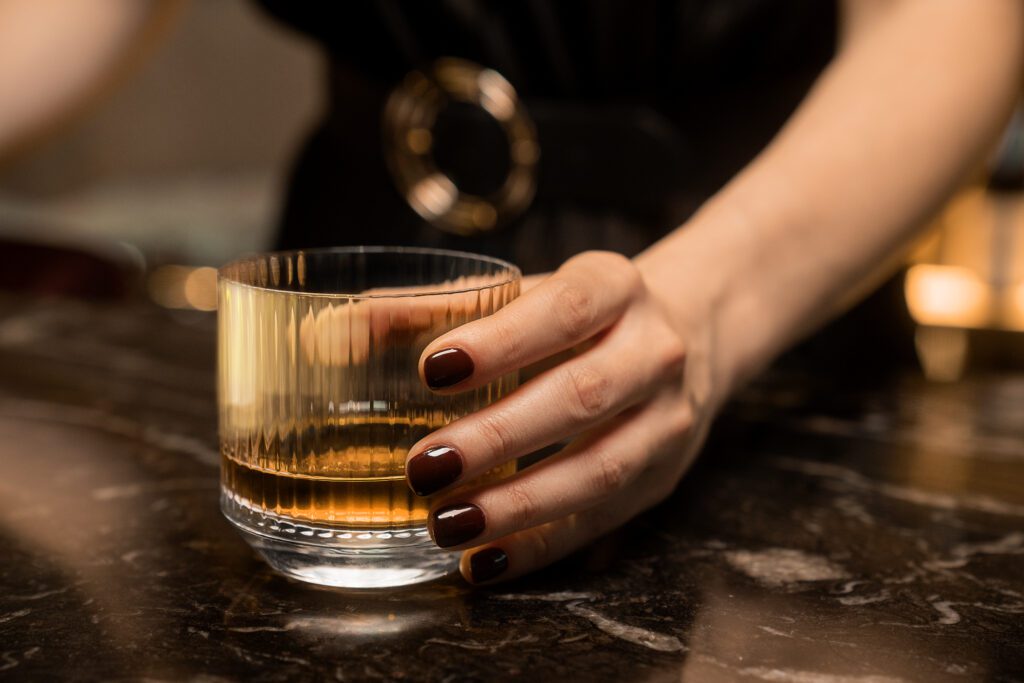With more and more dining options opening up for those enjoying a gluten-free or vegan lifestyle, which alcoholic drinks, including whisky, are acceptable can still be a little confusing.
While whisky is made with malted barley, the finished product is gluten free. Anyone with coeliac disease or those cutting out gluten for other reasons will be glad to hear that whisky can be drunk safely and it’s all down to distillation.
The Coeliac UK charity explains this, saying: “Even when a cereal that contains gluten is used as an ingredient, all spirits are distilled during the manufacturing process and this process removes any trace of gluten. Therefore, all spirit drinks (including malt whisky which is made from barley) are safe for people with coeliac disease.”
Gluten is produced when making whisky, in the mashing of the barley, and it will be carried through the fermentation process. It’s present in wort but, during distillation, gluten - a heavy compound, will be lost therefore it is not present in whisky or distilled spirits.
The casks whisky is matured in - sherry, bourbon or ex-wine casks - are all gluten free but if a beer cask has been used, it’s best to check this out before taking any risks.
To be called whisky, the drink must be 40% ABV which means that forty percent of the drink is pure alcohol. If the ABV is higher, the percentage of alcohol is higher too.
This all matters when it comes to calories. A single measure of whisky, 25ml, equals one measure of alcohol and can contain around 61 calories. The calories will increase depending on what mixer you add to your whisky, if you choose to do so.
Remember drink aware’s advice: “To keep health risks from alcohol low, if you choose to drink, it’s important to stick to the UK Chief Medical Officers' low risk drinking guidelines. That means no more than 14 units a week, spread over three or more days, with several drink-free days - and no bingeing.”

The short answer here is yes, whisky is vegan. Unlike some wines, whisky is not refined by using animal derivatives.
Because all ingredients are plant-based, and the fermentation process doesn’t use animal derivatives, whisky is vegan.
Dominika Piasecka, spokeswoman for The Vegan Society, said: "Fortunately, virtually every brand of hard liquor—bourbon, whisky, vodka, gin, and rum—is vegan.
"Nearly all distilled spirits are vegan except for cream-based liqueurs and products that mention honey on the label."
Thankfully, the Vegan Society has confirmed that most spirits use animal-free processing meaning most of them are vegan.
However, the exceptions are certain whiskies, including liqueurs, that contain honey meaning they are excluded from a plant-based diet.
All the answers to these questions can be found in how whisky is made. In Scotland, whisky is made with three ingredients - water, malted barley and yeast.
The barley, which is usually malted off-site from whichever distillery is making the whisky, is ground down into a fine powder known as grist and the impurities removed.
This malt grist is fed into the mash tun where it is combined with a carefully measured quantity of hot water. This completes the conversion of dextrin into maltose and produces a fermentable solution of the malt sugars called 'wort'.
After several washings to draw out the malt, the solid residue or 'draff' is removed and sold as cattle food. The wort is then cooled in a receiver known as the underback and then transferred to the 'washbacks' where the yeast is added for fermentation.
The fermentation produces an alcoholic clear liquid called 'wash', which is now ready to be distilled in the copper stills.
The wash is distilled in the first still known as the 'wash still' to produce an impure product called 'low wines'. This is then fed via the spirit safe into the low wines charger ready for the next stage of distillation.
When ready, the low wines are discharged into the spirit still and the process repeated. The final product - raw, unmatured spirit passes via the spirit safe to spirit receiver - and cut into head, heart and tails - and spirit store, ready for filling into barrels to be matured.
The new make spirit, which is clear, is filled into oak casks and matured in a dunnage warehouse in Scotland for a minimum of three years and one day.
These casks, which must be oak for the liquid to be called Scotch whisky, are usually ex-bourbon and ex-sherry, but more and more ex-wine and port casks are being used for finishes to impart different flavours.
